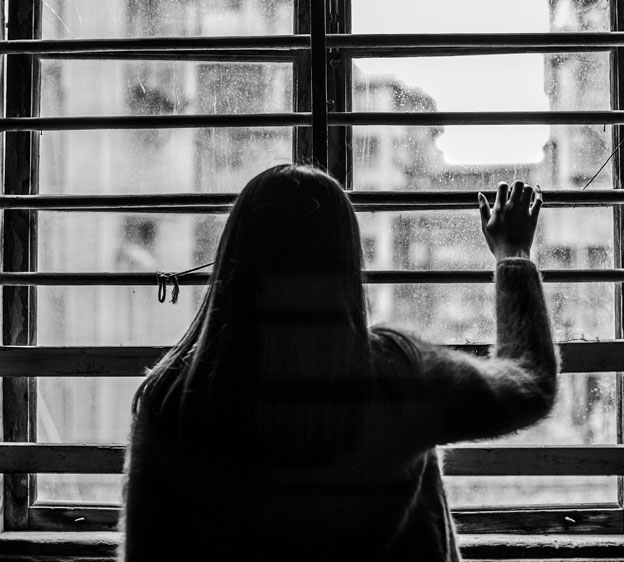
Domestic violence is a traumatic experience that affects more than 10 million American men and women every year. Because it often takes place behind closed doors, it is easy to overlook or explain away.
Abuse can take many forms, ranging from physical and emotional abuse, sexual assault, financial control, and psychological actions or threats meant to harm or influence an intimate partner. It can happen at any age and affects people of all sexual orientations, ethnicities, religions, sexes and socioeconomic backgrounds.
Abuse victims may experience a wide range of physical and mental health symptoms resulting from domestic abuse trauma, including depression, suicidal tendencies, panic attacks, substance abuse disorders, and sexual and reproductive health issues.
Domestic Violence and PTSD
One of the lesser-acknowledged outcomes of domestic violence is post-traumatic stress disorder (PTSD), a psychiatric disorder in which a person has difficulty recovering after experiencing or witnessing a terrifying event. It can result from any traumatic event, whether a war or serious accident, but domestic violence is an often under-recognized cause.
Symptoms of PTSD are sometimes difficult to establish, as there is considerable overlap between PTSD and other mental health conditions. However, symptoms are normally defined by three overarching categories:
- Avoidance: Avoiding reminders or “triggers” of the traumatic event, such as people, places, thoughts or events
- Arousal and reactivity: Sudden inexplicable anger, outbursts, difficulty being reached emotionally, feeling numb, trouble sleeping and startling easily
- Reliving the event: Being confronted by the emotional trauma of the event suddenly and without an obvious reason, resulting in emotional outbursts, chills, heart palpitations, extreme anxiety and other symptoms
Left untreated, PTSD can cause long-term mental health effects, including anger management issues, severe depression and intense loneliness. Additionally, untreated PTSD can increase the likelihood of developing several life-threatening conditions including Type 2 diabetes, heart disease, high blood pressure and substance abuse disorders.
What PTSD From Domestic Violence Looks Like
PTSD can develop in anyone experiencing a major life-threatening event, and this includes domestic violence, which exposes the victim to varying degrees of fear, vulnerability and helplessness. The fear experienced from a traumatic event can become overwhelming but is often not dealt with immediately, due to the abuser living in close quarters or being in the victim’s life regularly.
“The likelihood of PTSD increases after a domestic abuse event, though its effects can be mitigated through seeking emotional support,” says Dr. Mary Wynn Hill, a board-certified psychiatrist and medical director of the Beaufort Memorial Mental Health Unit. “However, this is not always possible, as it requires trusted family and friends who are willing to listen and potentially intervene.”
Other risk factors that increase the likelihood of a domestic violence victim developing PTSD include sustaining a physical injury, feeling helpless, lacking a supportive community, having to deal with additional stressors before and after the event, and having a history of mental illness or addiction.
Treatment for PTSD
Treating PTSD in domestic abuse victims can be complicated, and there is no one-size-fits-all treatment. A mental health professional can devise a treatment plan to address specific symptoms.
“If the abuse victim is still partnered with the abuser, it is unlikely that PTSD treatment will be highly effective,” says Dr. Hill, who sees patients at Beaufort Memorial Sea Island Psychiatry. “Both domestic violence and PTSD must be addressed at the same time. Victims who feel trapped in their relationships or are hesitant to seek treatment due to ongoing threats of violence may find it increasingly difficult to receive or benefit from proper treatment.”
Read More: Getting Help for Treatment-Resistant Depression
Additionally, abuse victims often experience more than one mental health problem, such as depression, addiction or suicidal thoughts, making it more difficult to define PTSD as a significant contributing factor.
When PTSD is properly diagnosed, it can be treated successfully.
“Treatment often involves cognitive behavioral therapy (CBT), which can help victims manage the trauma of their experience,” Dr. Hill says. “There are many different types of CBT that can help people who have experienced domestic violence. Depending on the person, we can focus on therapies that help them feel safe, regulate their emotions, become more assertive, manage grief and the life transitions that may come with leaving an abuser, and dealing with depression and anxiety.”
Self-care when experiencing PTSD remains critically important. In addition to medication and psychotherapy treatment, there are simple lifestyle changes you can make to improve your chance of recovery:
- Engage in regular exercise to help reduce stress.
- Confide with a trusted friend or loved one
- Communicate what may trigger your symptoms
Above all, go easy on yourself. Symptoms may improve gradually, not immediately, so don’t get discouraged.
If you or someone you love is experiencing domestic violence, call the National Domestic Violence Hotline at 1-800-799-SAFE (7233). If you think you or someone you love has experienced PTSD as a result of a dangerous home situation, a Beaufort Memorial primary care provider can connect you with mental health resources that can help.

